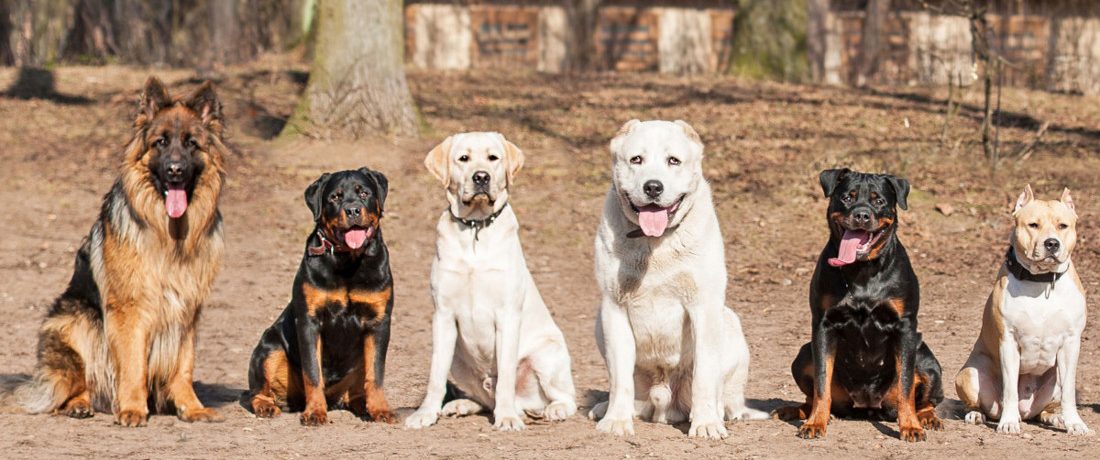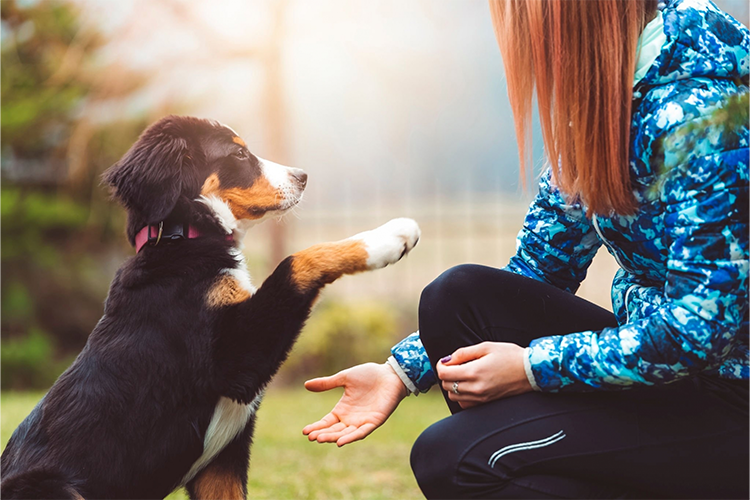The Benefits of Very Early Dog Training for a Mannerly Family pet
The Benefits of Very Early Dog Training for a Mannerly Family pet
Blog Article
Necessary Tips for Successful Dog Training: An Overview for Animal Owners
Reliable pet dog training is a multifaceted procedure that needs a tactical approach customized to both the family pet's character and the owner's purposes. Comprehending how to navigate these challenges can substantially enhance the training experience, eventually transforming the partnership between owner and canine.
Comprehending Dog Actions
Recognizing dog habits is essential for effective training and promoting an unified partnership between dogs and their proprietors. dog training. Pets communicate mainly with body language, articulations, and activities, making it crucial for owners to translate these signals precisely.

Socialization plays a considerable function in canine behavior; exposure to numerous settings, individuals, and other animals can considerably impact a dog's personality. In addition, variables such as type qualities and individual personality need to assist training techniques, as some breeds might have certain behavioral traits that demand customized methods. By comprehending these elements, proprietors can create an encouraging atmosphere that urges favorable behavior, bring about successful training end results and a deeper bond with their pets.
Developing Consistent Commands
Efficient communication with your pet dog begins with developing consistent commands. This foundational aspect of training is important for promoting understanding between you and your animal. Uniformity in the commands you use makes certain that your pet dog can dependably connect details words or expressions with the preferred actions.
When selecting commands, select clear, distinct words that are easy to distinguish and claim from one another. Stay clear of making use of similar-sounding commands that might confuse your pet. As an example, utilizing "sit" and "stay" is appropriate, yet "rest" and "struck" could cause misconceptions.
Additionally, maintain the exact same tone and quantity for each and every command. Dogs are sensitive to vocal signs, so differing your tone can create confusion.
It is just as vital to make certain that all member of the family are on the same web page pertaining to the commands utilized. A united front in command usage will avoid mixed signals and enhance the understanding procedure.
Favorable Support Methods
The power of positive reinforcement in pet dog training exists in its ability to motivate wanted habits via incentives and praise. This technique is based in the concept that habits complied with by positive results are more probable to be duplicated. By incorporating positive support into your training program, you can efficiently shape your canine's behavior in a useful way.
To execute positive support, it's important to identify what motivates your pet, whether it be deals with, playthings, or spoken praise. When your pet does a desired activity, such as sitting on command, instantly reward them with a treat or affection. This organization between the command and the positive end result reinforces their understanding.
It's essential to timing the rewards appropriately; providing the support within seconds of the this post wanted habits assists your pet make the link (dog training). Additionally, consistency is crucial-- make certain that all relative use the very same commands and benefit systems to stay clear of complication

Slowly, you can lower the frequency of deals with as your pet finds out the habits, transitioning to praise or intermittent rewards. This technique not only cultivates a strong bond between you and your canine however also promotes a favorable knowing atmosphere, making training an enjoyable experience for both.
Socialization and Communication
Consistently exposing your pet dog to a range of settings, people, and various other animals is crucial for their social development. Socializing needs to begin early, ideally during the important home window of 3 to 14 weeks, when young puppies are most receptive to brand-new experiences. Nonetheless, older pet dogs can also gain from recurring socializing efforts.
Present your pet dog to different setups, such as parks, pet-friendly stores, and urban locations. This direct exposure aids them adapt to numerous stimulations, reducing anxiety and concern responses. Motivate positive communications with other pets and people, ensuring that these encounters are controlled and secure to foster confidence.
Make use of structured playdates with genteel pets, as this can improve your canine's social abilities and show them appropriate behavior. Obedience courses and training sessions likewise supply outstanding opportunities for socializing, allowing your canine to engage with others in a monitored environment.
Screen your pet's body movement during interactions, as this will assist you gauge their comfort level. Gradually boost direct exposure to even more tough situations while guaranteeing that each experience declares. A well-socialized pet is much more likely to show well balanced actions, making them a joy to have in this page any setup.
Addressing Typical Training Obstacles
Every pet owner will encounter training challenges at some time, despite their dog's age or socialization level. Determining common issues such as stubbornness, disturbances, and fearfulness can help in creating effective approaches for improvement.

Progressively introduce diversions as the pet dog ends up being much more proficient in commands. Short, regular training sessions are also effective in maintaining interest.
Fearfulness can impede a canine's knowing process. Progressive desensitization to the source of fear, paired with positive support, can help alleviate stress and anxiety. Patience is crucial; never require a pet right into a circumstance that creates distress, as this may worsen the problem.
Ultimately, understanding and dealing with these usual obstacles with an organized strategy will cultivate a much more efficient training experience, enhancing the bond in between pet dog and proprietor while advertising efficient discovering.
Conclusion
In recap, effective canine training counts on an extensive understanding of canine actions, the facility of constant commands, and the application of favorable support methods. Socialization plays a crucial function in developing well-adjusted animals, while investigate this site attending to typical training obstacles needs patience and adaptability. By carrying out these important techniques, pet proprietors can promote a solid bond with their dogs and promote desirable behaviors, ultimately bring about a harmonious partnership between people and their canine buddies.
Comprehending pet habits is essential for reliable training and promoting an unified relationship in between dogs and their owners.Socializing plays a substantial function in canine actions; direct exposure to different settings, individuals, and various other pets can substantially impact a canine's temperament.The power of positive support in canine training exists in its ability to encourage preferred habits via benefits and appreciation. By incorporating favorable reinforcement right into your training routine, you can successfully shape your canine's behavior in a constructive manner.
In recap, successful canine training relies on a detailed understanding of canine habits, the facility of consistent commands, and the application of favorable support methods.
Report this page